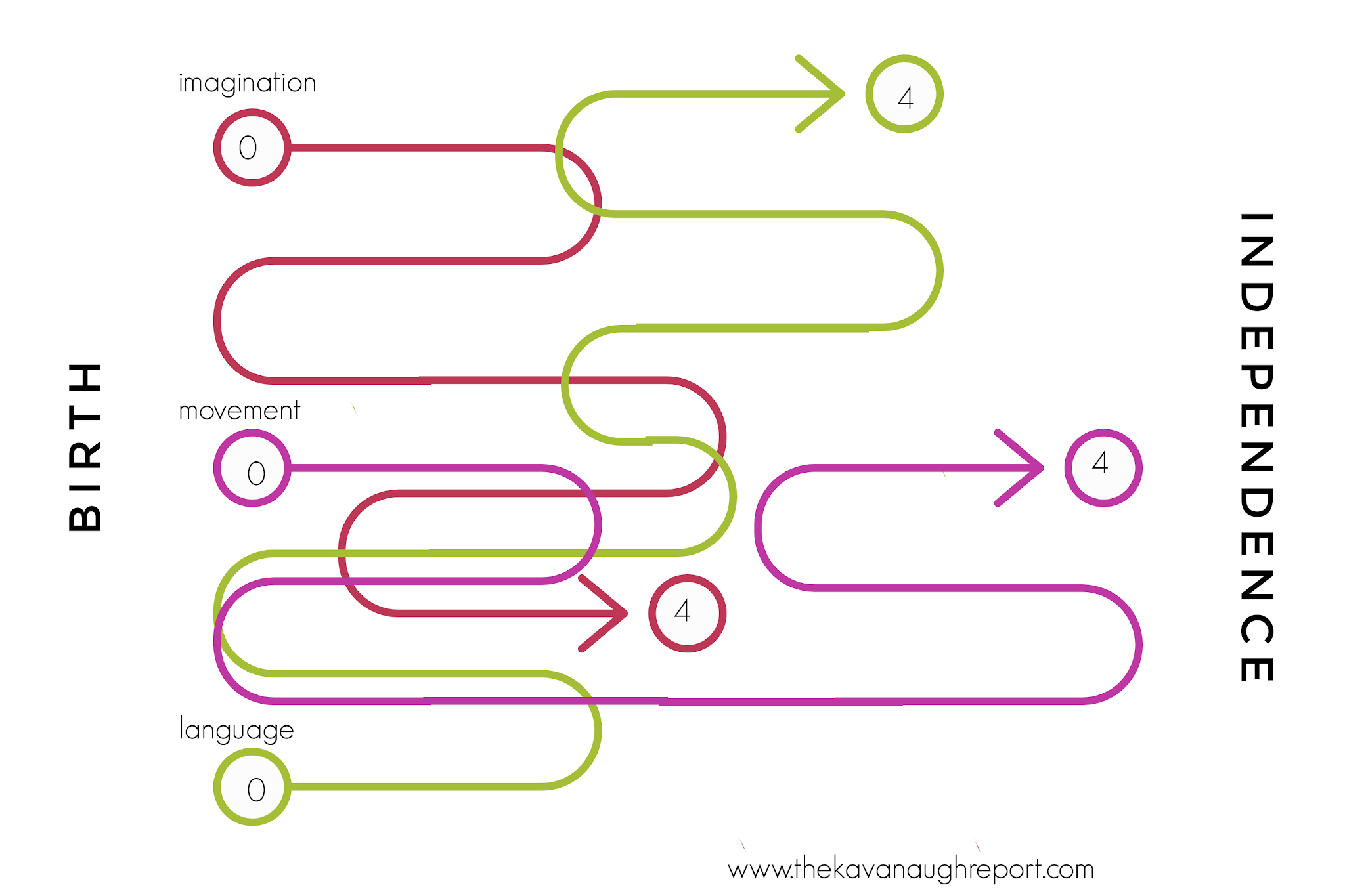I don't know what it is, but all of a sudden all of my kids feel very big and very old. Logically, I know that's not really the case, but it really feels that way. I don't know if it's just summertime, or if it's because we've been home and together so much, but whatever it is, it has me thinking about independence.
I often get questions about how to make children become more independent. Or about how to encourage independence at home. And, it's true, independence is really important in Montessori. As parents we want to make sure we are giving children as much independence as possible, but we also don't want to force it. Maria Montessori never said children need to be independent at all costs, but she said, "never help a child with a task at which he feels he can succeed." We want to give them opportunities when they want them, but support them when they need it.
I was recently reading of the the 1946 London Lectures again and I kept coming back to this idea of stages of independence. I just had to create a little chart for me to think about it. Basically, it dawned on me that independence is not just one path from point A to point B. But it's multiple paths at different stages, winding together, developing at different rates, paces, and stages. I've identified three paths, but I would be willing to guess there are more.
Movement
From the first tiny movements of a newborn, all the way to all the varied movements of an adult, each new stage will allow for more and more independence. I roughly identified them as from the movements of the hand to walking. As a child become more and more proficient in movement, new parts of their environment open up. This might be a quick burst of development in this path, and then a more slow road to the finish. Or it might be slow and stead from the start. No two children will follow the exact same development.
Language
Again, from all those cute little baby sounds, to talking, to writing and reading - language work is something that a child (or even an adult) will work on for a long time. The more language a child acquires, the more independent a child will be. By accessing language, they can interact more with the environment or even ask for help within the environment! Just think about what a huge step toward independence the simple act of using communication to ask for help is! Independence won't always look like doing things completely on their own.
Imagination
Here, I was thinking about mental independence. The smaller the child the more concrete their mind will work and as they get older and older, they will be able to think more abstractly. The more abstract a person can think, the more creative they can be in creating and crafting solutions to problems/challenges. With this abstract thinking imagine new scenarios, and situations, and they can independently work to achieve them (with the help of those movement and language skills.)
Like the hypothetical path shown above, a child might be at completely different places in the development of independence at any given time. I chose age 4 on the chart. So the child might be much more independent in movement, for example, than language or imagination. I think it's good to take stock in where your child might be very independent and offer opportunities in those areas. Or, if you're feeling frustrated about a lack of independence, think about what area it might be in and where you can offer support.
Where on these paths toward independence is your child? Can you think of other paths?



